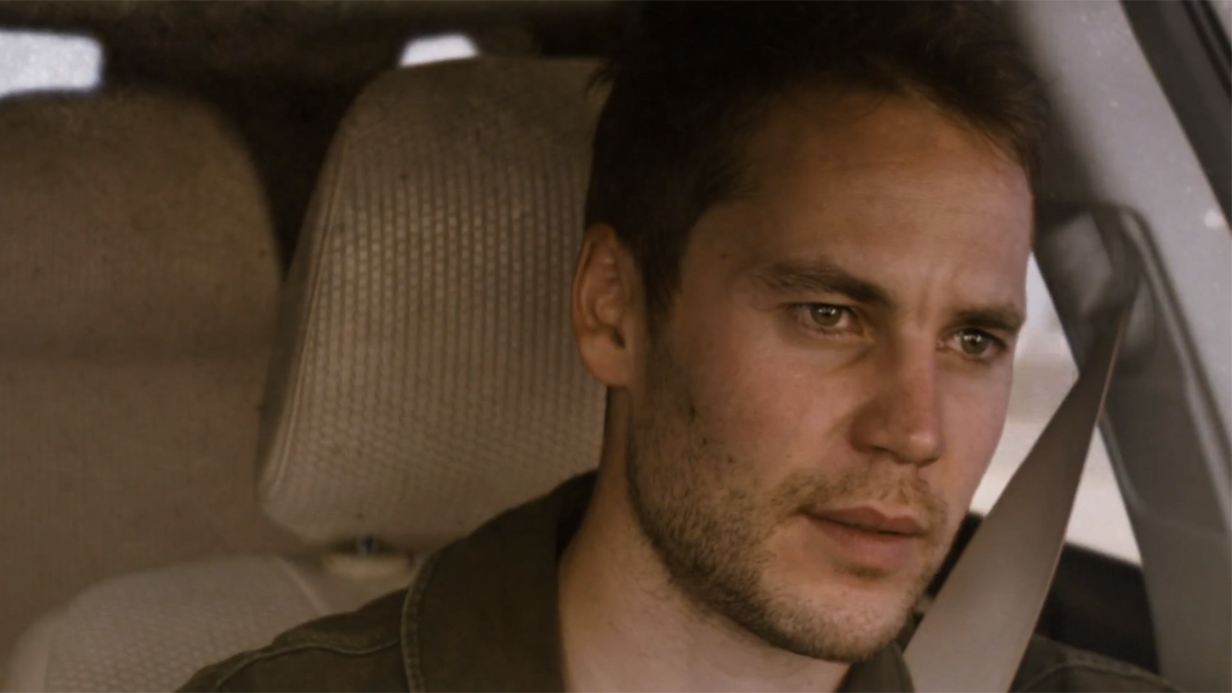When we last saw our trio of detectives, they were fleeing from an orgy in a supercharged Dodge Charger carrying one (presumably) kidnapped girl and the weight of a murder with them. Was it ridiculous? Yes, it was ridiculous. Fun, too, and it contained the germ of what made “Black Maps and Motel Rooms” the best episode of season two so far. The hope was that the twinge of fear in Ani’s eyes as Velcoro burned rubber under the full moon would be a forerunner to our getting to see something of these people’s interior lives—not through monotonous dialogue served with a middle-distance stare, but through actual, believable scenes of them reacting to the circumstances in which they find themselves.
And those circumstances increasingly show these characters that their lives are not under their control. Semyon is forced to confront the ways in which Blake (who, we learn, was saved from the world of “selling baby aspirin to club kids”) is undercutting him, and bashes his face in with a whiskey tumbler. Velcoro gave up his dream an episode ago, leaving Chad to his Friends episodes—the kid gets a single cursory mention here, and if Nic Pizzolatto is able to fit that particular plot’s resolution into his final hour next week, we can all whistle in admiration. Still in a daze after remembering her childhood attacker’s face during the orgy, and with streaks of blood still drying on her arm, Ani spends nearly the entire episode hunkered in a sleazy motel room waiting for what happens next.
And Woodrugh—poor, poor Woodrugh, whose fear of being outed (and therefore no longer “a good man,” as he puts it twice in this episode) leads him deeper into the darkness and puts two bullets in his body. Of the three detectives, Woodrugh was always the calmest under pressure, his wartime involvement with Black Mountain (recently rebranded as Ares Security) serving him well when faced with violence and chaos. True to form, he nearly shoots his way through Vinci’s underground tunnels to total freedom. But it’s internal chaos that he can’t control. “If you had just been honest about who you are, nobody’d be able to run you,” Miguel says. In a decent-enough piece of symbolism, Woodrugh manages to use his former lover’s body as a human shield; he’s unable to kill off his own inclinations, but he’s happy to let the world do it for him. That he ends up getting ambushed right at the moment of his own escape at least suggests that he was always doomed to fail in his mission to take charge of his life and sexuality—or, as Emily says when he insists that he’s trying to be better, “You don’t try right.”
This season has never really pretended like the Caspere case or the larger crimes and systemic corruption to which it points are at what it’s interested in. Through seven episodes, the series has tried to answer the question of how much control a person can exert over their life and sense of self. Or, stated differently, just how hard the world will work to exert its own power against the individual’s will. And that does seem to be the chief driver of this season’s darkness. Not a vague, occult evil or even a series of shifting wills being exerted by people with varying levels of power. It’s something more ineffable and inescapable, which makes it all the more horrifying. Is there freedom for any of these people? Or are they trapped in a city and a society intent upon destroying them? Is that the world they deserve? True Detective has one more hour to figure it out. If the final episode as is provocative as “Black Maps and Motel Rooms,” season two may end up doing something it’s been trying to argue against. It may end up redeeming itself.









